On July 16, I was attending a friend's wedding in Naogaon, located around 200 km from Bangladesh’s capital city Dhaka, where I live now, when a Facebook notification shocked me.
Bangladesh was in the middle of massive protests led by university students and young people like me. Some of the protesters were my own friends.
I had, in fact, joined the protests twice in early July when it was peaceful. We formed human chains and chanted slogans such as, “Quota or merit? Merit, merit!”
The demand, as the slogan connotes, was to scrap reservations in government jobs, which, though reserved for descendants of freedom fighters (and women and the disabled), were being exploited to favour loyalists of then prime minister Sheikh Hasina and her Awami League party.
Like all young Bangladeshis, I wanted a fair selection for the prestigious civil service jobs.
But on the day of my friend’s wedding in mid-July, protests turned violent. Hasina had invoked thousands of paramilitary and police forces to crack down upon students. Six people died.
Just before Hasina’s government shut down the internet, my Facebook feed showed that among those killed was my own school friend, Jahiduzzaman Tanvin.
He was a talented young man who co-founded the country's first and only company focused on drone sales. While the situation in the country had instilled a deep sense of anger in me, his death hit me hard.
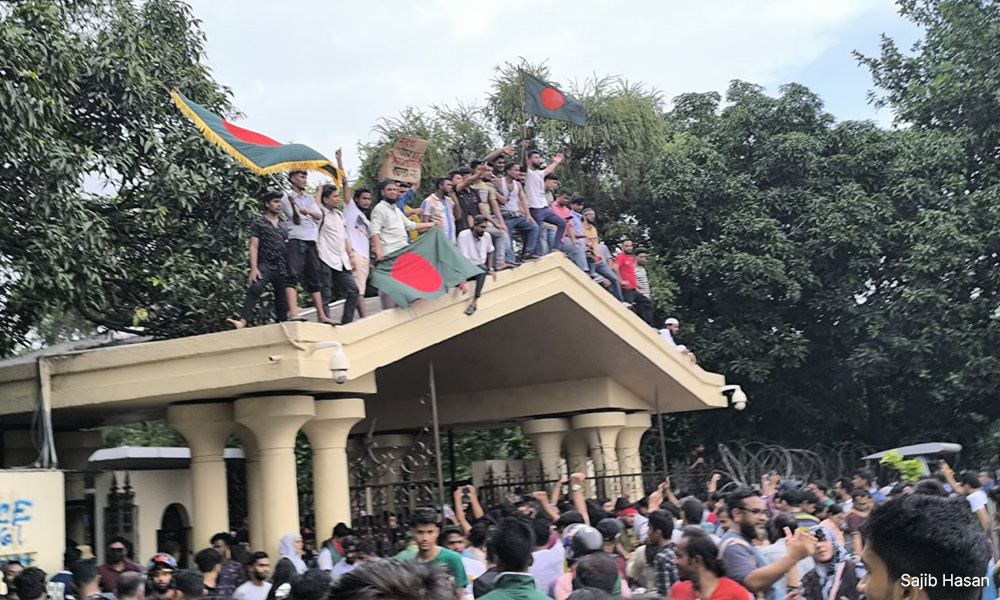
One-quarter of my country’s population is aged between 10 and 24 - the Gen-Z generation. I’m 26 years of age. Various news outlets have coined the current state of the country as “Bangladesh 2.0”. I call it “Bangla Bashanta” - our very own Arab Spring.
Corruption behind quota
I have been drawn to the anti-quota movement since 2018. In those years, Hasina would respond to students’ demands and cancel quotas in government jobs.
What the students, however, always wanted was a reform and not a complete scrapping of the reservations.
I’ve never sat for government exams but I’m well aware of the pain and struggles young Bangladeshis go through for these jobs.
The Bangladesh Civil Service (BCS) exams take three to four years to prepare. Hundreds of thousands of BCS applicants compete for a handful of posts.
These jobs are nevertheless coveted because of a common belief that, unlike most jobs, you can never lose a government job.
Behind this prestige and glamour, however, is a history of corruption scandals.
Police investigations have exposed a syndicate involving officials and employees of the Public Service Commission leaking at least 30 question papers for government recruitment tests in the last 12 years.
This year, The Daily Star found documents showing how a company founded by former Awami League politicians took out Bangladeshi taka 95,331 crore (RM34.90 billion) between 2017 and June 2024 from six government banks.
Another report found how a former police chief and his family were embroiled in corruption, including buying at least 204.5 acres of land between 2009 and 2023, while also winning awards such as the Best Taxpayer Award and Integrity Award.
The chequered history of government employees also includes a driver for the Directorate General of Health Services amassing wealth worth more than Bangladeshi taka 100 crore (RM36.65 million) illegally.
Dhaka Wasa managing director Taqsem A Khan, along with eight others, was accused of embezzling Bangladeshi taka 132 crore (RM48.38 million) from the Dhaka Wasa Employees Multipurpose Cooperative Society Limited.
Even Hasina’s office aide amassed Bangladeshi taka 400 crore (RM146.53 million), while her former private sector adviser Salman F Rahman owes some Bangladeshi taka 36,865 crore (RM13.52 billion) with seven banks.
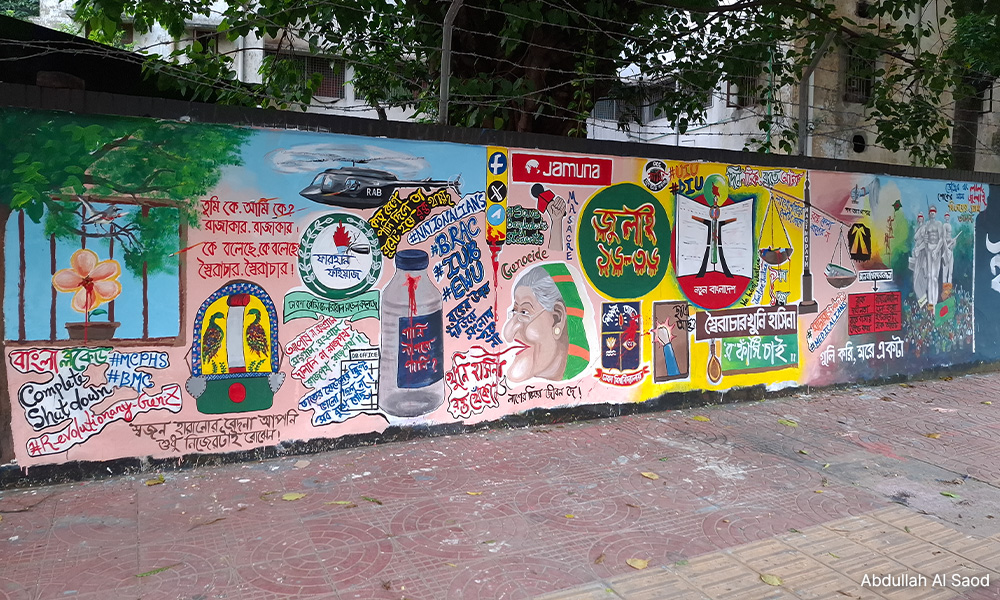
We had two anti-quota protests in the last six years, so while this year’s anger wasn’t new, it was definitive in its intentions.
The protests quickly expanded from scrapping reservations to demanding Hasina’s resignation. The protests were successful, and how.
Unity among students
What may have worked this time was how students across different university systems united for one common goal.
Previously, anti-quota protesters were divided on the basis of institutions - public, private and national. Public universities are considered the best, while private universities are expensive and widely perceived to be for those who can afford it.
National universities aren’t as meritorious as public universities, and their funding is far less. The protests were scattered and weak, owing to strength in numbers and madrasah students were often looked down upon. These sections didn’t support each other.
This year, these divisions melted away.
In the last two months, these students have been labelled “Razakars”, a derogatory slang used for paramilitary forces that supported and aided Pakistan's brutal military operation against Bangladesh’s 1971 Liberation War.
Then, the police shot at them.
The first casualty was Abu Sayed, a student from Rangpura’s Begum Rokeya University, on July 16. As the death toll rose, casualties started to include even those who were not protesting but merely standing on their verandahs or rooftops.
The day I arrived in Dhaka, my father told me, "I was telling my colleagues that maybe my son is alive because he was not in the city. Had he been there, he would have gone to the protests, and God knows what might have happened to him."
My mom couldn’t sleep. “I saw those videos (of students getting killed). What if one of them was my son?” she asked me.
On Aug 5, Hasina fled and security forces disappeared as students and other protesters opened the gates of the Gono Bhaban, which is the official residence of the prime minister. These were spaces considered too elite and inaccessible for people like us.
It wasn’t entirely hunky dory though. While many count Aug 5 as victory day, there was news of rioting and burning down of historical structures.
Members of Hasina’s Awami League Party were attacked by students. Hindus and other minority communities were attacked too although in some places, Muslims protected Hindu and Christian places of worship.
In the absence of the police, students took over the streets with sticks, cleaning up after the violence, manning the traffic and protecting neighbourhoods from night-time looting.
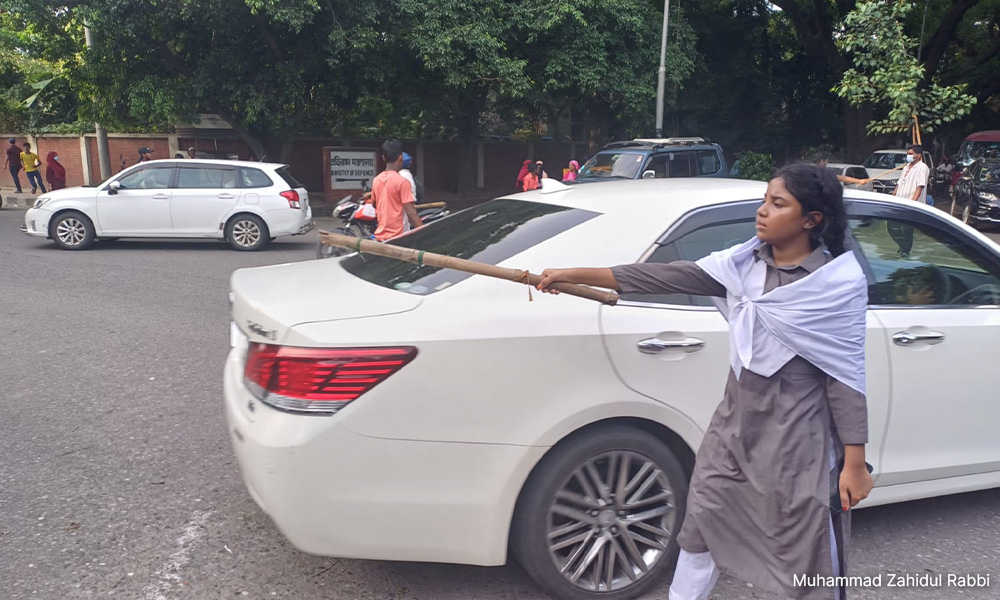
Under the watchful eyes of students and their demands for Bangladesh 2.0, an interim government has been set up, with Nobel laureate Muhammad Yunus as its interim leader.
Right now, they’re preparing for a snap general election. This is a big change from the previous elections of 2014, 2018 and this year, which people largely believe to be rigged.
I remember as a kid, Muhammad became the first Nobel prize winner from Bangladesh and that accomplishment made me feel proud of my country.
When the student movement coordinators asked him to lead this interim government, it made me hopeful of achieving the reforms our country needs right now.
Real work starts
In Bangladesh 2.0, my personal vision is to reform the state machinery.
Hasina is gone but her corrupt legacy leaves us with a USD156 billion (RM682.34 billion) in debt. Several banks are on the verge of collapse.
A 2023 World Bank report positions Bangladesh second in the list of South Asian countries with bad loan ratios, which is reflective of record-high default loans and also non-performing loans that industry insiders say are a result of corruption and bad governance in Bangladesh.
The 2023 Corruption Perceptions Index, released by Transparency International, shows us ranking 10th from the bottom.
On top of the economic worries, human rights violations and gender disparities plague the nation.
Bangladeshi human rights group Odhikar has documented extrajudicial killings of around 3,000 people and enforced disappearance of more than 700. This could just be the tip of the iceberg.
Furthermore, the Global Gender Gap Index 2024 ranks us 99th among 146 countries even though we’ve had a woman leading the country for 15 years.
There’s also a lot of work to be done to protect and uplift Indigenous people and minorities. They, too, are Bangladeshis.
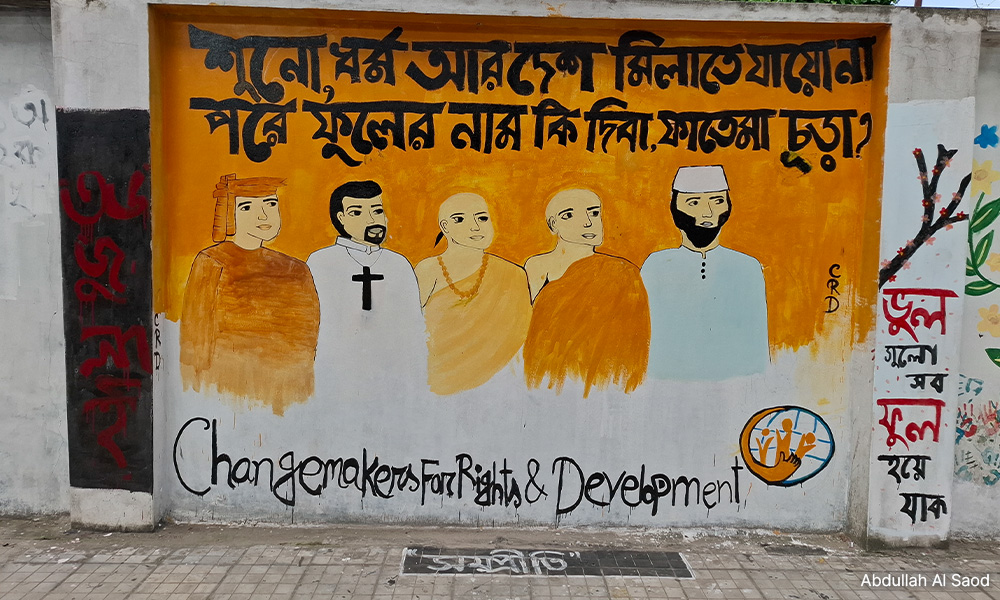
With Muhammad as their chief adviser, 20 advisers - made up of highly accomplished professionals - are tasked with bringing change.
So far, this cabinet has dismissed 876 elected representatives and 25 deputy commissioners in an effort to shed the agents of corruption.
This newly minted cabinet includes students too. Nahid Islam, for instance, is a sociology student at the University of Dhaka, who is now an adviser for information and communications technology.
Another Gen-Z, Asif Mahmud Shojib Bhuiyan, a linguistics student, is now the youth and sports minister.
Even though I’m cautiously optimistic, I’m confident that the events of the last two months will be a part of Bangladesh’s history that will unite and empower generations to come. - Mkini
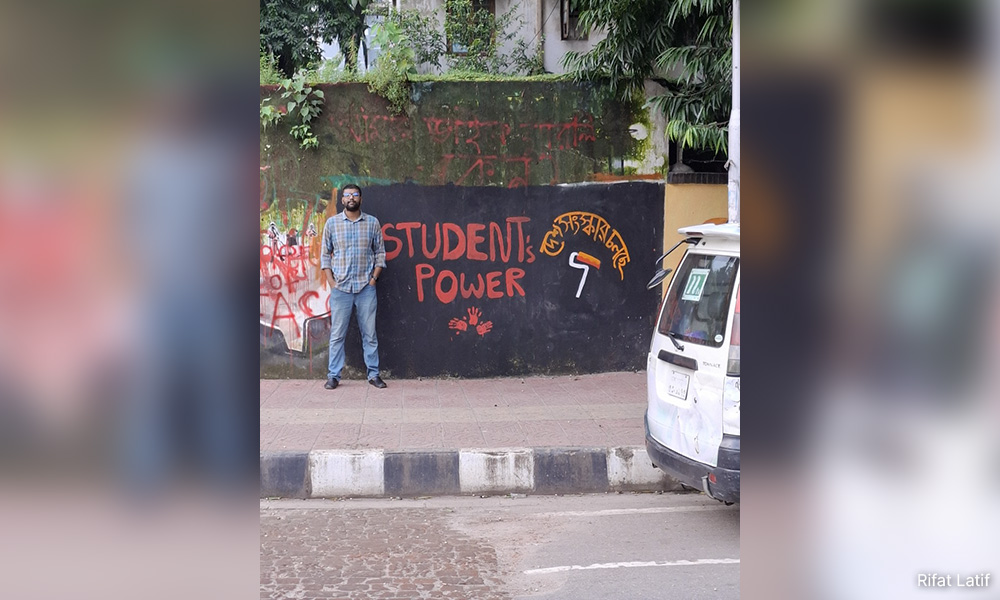
The article was edited by Pallavi Pundir and was first published in Asian Dispatch.
The views expressed here are those of the author/contributor and do not necessarily represent the views of MMKtT.

No comments:
Post a Comment
Note: Only a member of this blog may post a comment.